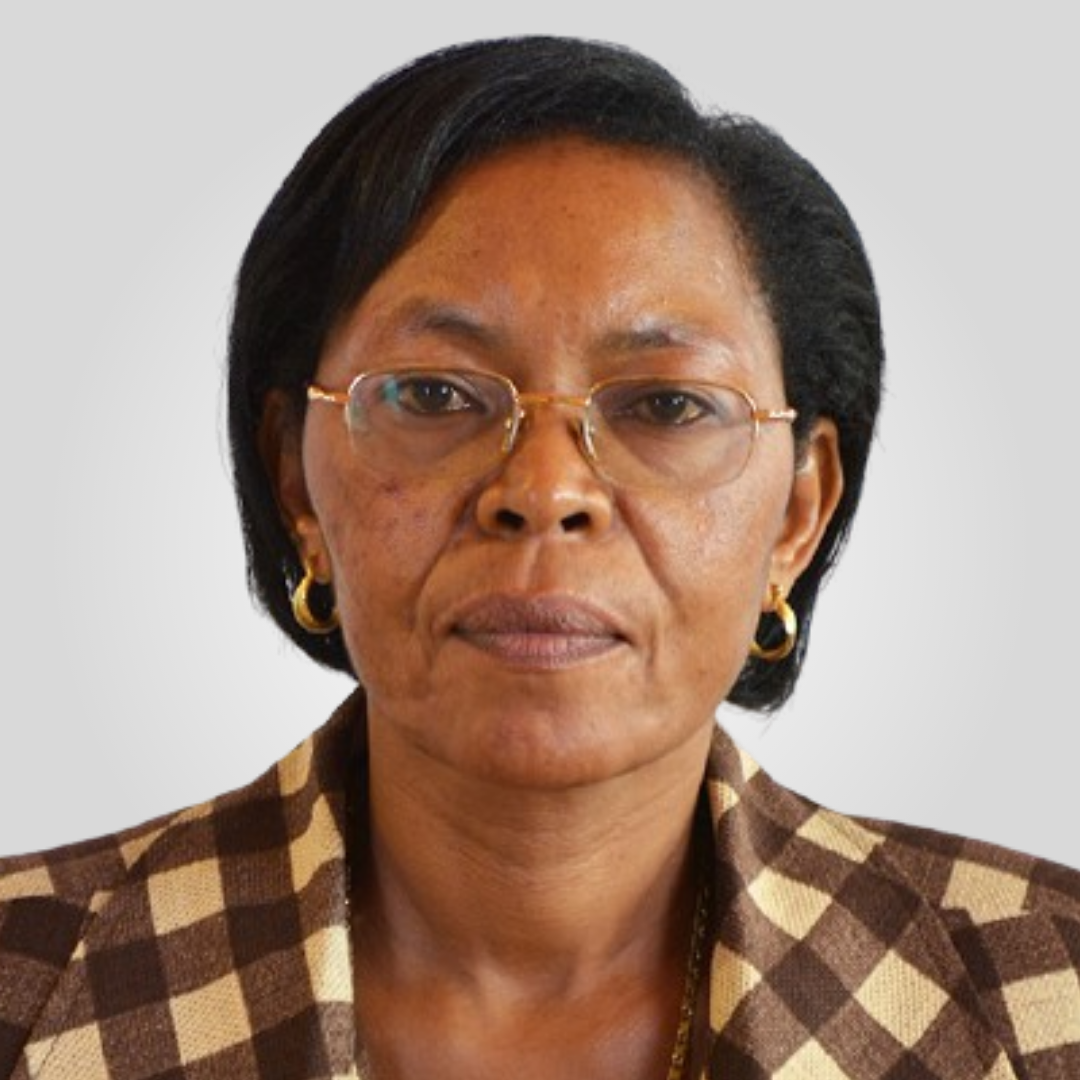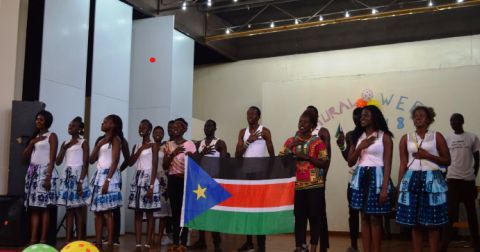School of Business & Economics
Introduction
The Bachelor of Commerce degree program started in 1991. Between 1991 and 2002 the students were admitted to the Department of Commerce and Business administration (CBA) in the Faculty of Arts and Social Sciences. The School of Business was inaugurated on 25th August 2003 then referred to as Faculty of Commerce. It has three departments: Department of Accounting and Finance, Department of Marketing and Management, and Department of Management Science. The departments offer jointly; ordinary diploma in business management, advanced diploma in Business Management and Bachelor of Commerce degree program, with specializations in Accounting, Finance, Banking, and Financial Services, Marketing, Management, and Human Resource Management,
The School has also a Graduate Business School, offering a Master of Business Administration (MBA) degree program with specializations in E-commerce, Human Resource Management, Strategic Management, Marketing, Finance, and Entrepreneurship. The Graduate School also offers a Doctorate of Business Administration with specializations in Human Resource Management, Finance, Management, and Marketing.
main programs
- Bachelor of Economics
- Bachelor of Economics and Statistics
- Bachelor of Economics and Finance
- Bachelor of Science in Hospitality Management
- Master of Business Administration
- Master of Economics with specialization
- Doctor of Business Administration with specialization


About the dean
Dr. Anne Kiboi is the Dean, School of Business at the Catholic University of Eastern Africa. She has lectured in the strategy and management fields for over 20 years in Kenya and South Africa. With a background in Accounting, Dr. Kiboi is also a management consultant with experience in the private and public, as well as the voluntary sectors and has worked on projects across these sectors. She holds a BA (Hons) from the United States International University, a Master of Business Administrations (MBA) from the University of Nairobi, and a Ph.D. in Business Management from Nelson Mandela Metropolitan University, South Africa. She also holds other teaching and professional qualifications. She has received several accolades for her contribution to the academic community. She has been invited as a guest lecturer to universities in South Africa and is an external examiner at the Nelson Mandela Metropolitan University (NMMU).
Dr. Kiboi has been a member of the School of Business Program Development and Strategy Development committees and also sits in various committees of the University including the Senate. She has published widely both locally and internationally. She has also attended many international and local academic conferences. Her research interest is in the area of competitiveness and competence development and her writings have focused on competence development process and competitiveness both at the firm and national levels. Dr. Kiboi is also a member of the Association of African Business Schools (AABS) and the International Academy of African Business Development (IAABD).
“Welcome and thank you for visiting the Catholic University of Eastern Africa (CUEA) School of Business website. Come and write your success story from the School of Business, CUEA. Strive and it will happen.”
Welcome and thank you for visiting the Catholic University of Eastern Africa (CUEA) School of Business website. The School’s website is designed to provide you with information about the excellent undergraduate and graduate programmes offered at the school and assist you in choosing and planning your academic and professional career. The website also contains information about the School’s faculty and staff, departments and programmes at the school. The School has three departments: Department of Accounting and Finance, Department of Marketing and Management and Department of Management Science.
The departments jointly offer; Ordinary Diploma in Business Management, Advanced Diploma in Business Management and Bachelor of Commerce degree programme, with specializations in Accounting, Finance, Banking and Financial Services, Marketing, Management and Human Resource Management. The School also offers Professional Studies classes in Certified Publics Accountancy (CPA); Association of Chartered Certified Accountants (ACCA); Certified Secretaries (CS); and a Certificate in Entrepreneurship. It’s our belief that graduating students of the school should have a certification and a professional area of their choice.
The School also has a Graduate Business School, offering a Master of Business Administration (MBA) degree programme with specializations in E-commerce, Human Resource Management, Strategic Management, Marketing, Finance and Entrepreneurship. The Graduate School also offers a Doctorate of Business Administration with specializations in Human Resource Management, Finance, Management and Marketing. At the CUEA School of Business, we proud ourselves on a large number of highly qualified lecturers and the great achievements of our students. The school’s graduates are among highly sought for in East Africa. Our Alumni work in over thirty Countries Worldwide.
Come and write your success story from the School of Business, CUEA. Strive and it will happen.
Dr Anne Kiboi
Dean, SoB CUEA.
Diploma
- Ordinary Diploma in Business Management
- Hospitality Management
Undergraduate
- Bachelor of Economics
- Bachelor of Economics and Statistics
- Bachelor of Economics and Finance
- Bachelor of Science in Hospitality Management
- Bachelor of Commerce with the following options;
- Accounting
- Finance
- Marketing
- Human Resources Management
- Banking and Financial Services, and Management
- Entrepreneurship
Postgraduate
Master of Business Administration, MBA (Day and Evening) with specialization in;
- Strategic Management
- Financial Management
- Marketing Management
- Human Resource Management
- Electronic Commerce
- Entrepreneurship
Master of Economics with specialization in:
- Econometrics
- Financial Economics
- Policy Management
- Health Economics
- Agricultural Economics
Doctor of Business Administration with specialization in;
- Marketing
- Management
- Accounting
- Finance
- Human Resources Management
Doctor of Philosophy in Business Management
- The School has achieved a regional diversity of students and staff that brings in diverse experiences in the learning process.
- The School was admitted as a member of the Association of African Business Schools (AABS) in March 2006.
- The School of Business programs are popular in the region with 40% of the University students population enrolled in the School of Business.
- More than 50% of the student population is made up of women. This is a sign of confidence by parents and sponsors for the Faculty to take care of their children (an alternative environment).
- In a study done on World Business School 2014, the bachelor of commerce was amongst the top one thousand list and was subsequently honored with a two Palmes award for its regional recognition and international influence. The Eduniversal rated the School as a good business school with strong regional influence. It was among the top four in Kenya.
- The School reviewed all its programs in all aspects in 2011.
- The School was periodically evaluated by Quality Assurance and the performance was good.
- The School launched the Doctorate of Business Administration (DBA) on 20th April 2012. Fourteen (14) students were admitted into the program. The first graduates were in 2015.
- Town Campus was launched in January 2013. The Faculty programs have all taken off successfully on the Campus. The School also introduced a weekend module for all its programs.
- The School launched its first book “Contribution of Business Management to sustainable Development on 28th September 2014.
Name Publications Aloys Ayako Gesami R., Mwabu G., Wang’ombe J. and Ayako A., (2004). ‘The Effects of Cost-Sharing on Health Services Utilization in Kenya: Evidence from Panel Data, in Improving Health Policy in Africa.’ University of Nairobi Press, Chapter 8, pp 133-143. Ayako A. B. and Musambayi K. (1997). ‘Review of Poverty in Kenya.’ Action Aid Kenya / Institute of Policy Analysis & Research, IPAR Special Report Series.
Ayako A. B. (2015) ‘Situation of Post-primary Education in Kenya: A Review of Structure, Performance, Drivers and Challenge’, International Journal of Education and Research, Vol. 3, No. 2
Lukwata, J.; Ogula, P.A.; Ayako A. B; Ryan, P.; Wakah, G.; and Onsongo, J. (2014) Paths of Development: CCR-IFCU Poverty Reduction Research Project, Nairobi, CUEA, Press.
Ayako A. B. (2013) Challenges of Effective Commerce and Business Enterprise in the Church and Society’, Proceedings of 13th Interdisciplinary on Deeper Evangelization, Formation and Education and Church Life, Organization and Structures, (CUEA Press)
Ayako A. B. (2013) ‘Financing Early Childhood Education in Kenya’ Proceedings of Faculty of Education Inter-Disciplinary Session, (CUEA Press)
Ayako A. B.; Katembu T.M.; Nzomo J.W. and Monyoncho J.K.M. (2006) Education and financing in Africa: The Kenya Case Study, Dakar, CODESRIA.
Ayako A. B (1994) ‘Financing of Street Children Programmes in Kenya, African urban Quarterly, Vol. 9, Nos. 1 & 2, and August & November.
Ayako A. B (1993) ‘Labour Absorption in Urban and Rural Areas in Kenya: Is Government policy at Fault?’ Wajibu, Vol. 8 No. 3.
Ayako A. B (2000) ‘Foreign and Local Investment in East Africa: Interactions and Policy Implications’, African Economic policy Discussion Paper Series, No. 67, EAGER.
Ayako, A.B., D.M. Makanda, S.M. Mwabu, L.M Awiti, Okech-Owiti (1989). “Contract Farming and Outgrower Schemes in Kenya: Case Studies”, Eastern Africa Economic Review, 5: 4-14.
Ayako A. B (1989) ‘Contract Farming and Small Holder Outgrower Schemes in Kenya: Comparative Analyses’, East African Economic Review, Special Issue.Abraham Kiflemariam Kiflemariam A. (2001). ‘Governance Without Government: Community Managed Irrigation in Eritrea.’ Volume 6 of CRBS-dissertatiereeks: Centrum voor Recht, Bestuur en Samenleving. Boom Juridische Uitgevers. Tessema T., M. and Soeters, J. L. and Kiflemariam A. (2005). ‘Practices and Challenges of the Training and Utilization of Labour in Sub-Saharan Africa: The Case of the Eritrean Civil Service.’ International Journal of Training and Development, Vol. 9, No. 4, pp. 214-230. http://dx.doi.org/10.1111/j.1468-2419.2005.00233.x Esther Nkatha Nkatha E. M., and Musyoki D. (2014) “Corporate Governance, Ownership Structure Perspective and Firm Value: Theory, and Survey of Evidence.” International Journal of Research in Management & Business Studies. Vol. 1 Issue 3. Pp 57 – 61. Robert Arasa Arasa R. and Kioko M. (2014) Analysis of NGO Competitive Strategies in Kenya: A Case of HIV/AIDS Focused NGOs International Journal of Economics, Commerce and Management. United Kingdom Vol. II, Issue 8, pp 1 – 13. Arasa R. and Kioko M. (2014). “An Examination of the NGO Sector Competitive Environment in Kenya.” International Journal of Science and Research (IJSR). Volume 3 Issue 6, pp 219 – 224
Ombuki, K., Arasa, R., Ngugi, P. & Muhwezi, M. (2014). Determinants of procurement regulatory compliance by Kenya’s public universities. International Journal of Social Sciences and Entrepreneurship, 1 (9), 542-559.
Arasa R. and Githinji L. (2014). “The Relationship Between Competitive Strategies and Firm Performance: A Case of Mobile Telecommunication Companies in Kenya.” International Journal of Economics, Commerce and Management. United Kingdom Vol. II, Issue 9,
Njeru S. E., Ngugi P., Arasa R., and Kahiri J. (2014). “Procurement Policies and Implementation Of Effective Procurement Practices In Tertiary Public Training Institutions In Kenya.” Global Advanced Research Journal of Management and Business Studies (GARJMBS), Vol. 3(4), pp 166-170
Kinoti J. B., Arasa R., Waititu G. A., and Guyo W. (2013). “Influence of Supplier Relationship Management on the Implementation of Supply Chain Management Ethics in Government Ministries in Kenya.” Global Advanced Research Journal of Management and Business Studies (GARJMBS) ISSN: 2315-5086. Vol. 2(9), pp 469-473Joseph F. Ntale Ntale J, F., Litondo K. O. & Mphande O. M. (2014) “Indicators of Value Added Agri-Businesses on Small Farms in Kenya: An Empirical Study of Kiambu and Murang’a Counties.” Journal of Small Business and Entrepreneurship Development. Vol. 2, No. 3 & 4, pp. 01-10. Published by American Research Institute for Policy Development Ntale, J. F. (2013). Economic activity diversification and livelihood outcomes in smallholder agriculture in Thika, Kenya. Phd thesis, published by Shaker Verlag – Germany http://www.shaker.de/de/content/catalogue/index.asp?lang=de&ID=8&ISBN=978-3-8440-1944-5
Ntale J. F. and Litondo K. O. (2013) “An Investigation into the entrepreneurial behaviours and human capital formation among small-scale farmers in Kenya.” African Journal for Social Science, Vol. 3, No. 4, pp 122 – 134. http://sachajournals.com/documents/AJSS2013-LITONDO-NTALE-02.pdf
Ntale J. F. and Litondo K. O. (2013). “Determinants of Commercial Mixed Farming on Small Farms in Kenya.” European Journal of Business and Management Vol.5, No.22, pp 47-54 http://www.iiste.org/Journals/index.php/EJBM/article/view/7452
Litondo K. O. and Ntale J. F. (2013). Determinants of Mobile Phone Usage for E-Commerce among Micro and Small Enterprises in the Informal Sector of Kenya. International Journal of Applied Science and Technology Vol. 3 No. 6; pp 16-23. http://www.ijastnet.com/journals/Vol_3_No_6_August_2013/3.pdfDanson Musyoki Musyoki D., Pokhariyal G. P. and Pundo M. (2012) “Real Exchange Rate Equilibrium and Misalignment in Kenya.” Journal of Business Studies Quarterly, Vol. 3, No. 4, pp. 24-42 Musyoki D., Pokhariyal G. P. and Pundo M. (2012) “Real Exchange Rate Volatility in Kenya.” Journal of Emerging Trends in Economics and Management Sciences, Vol. 3, No. 2.
Musyoki D., Pokhariyal G. P. and Pundo M. (2014) “The Impact of Real Exchange Rate Misalignment on Economic Growth; Kenyan Evidence.” Research Journal of Finance and Accounting. Vol. 5, No 8.
Nkatha E. M., and Musyoki D. (2014) “Corporate Governance, Ownership Structure Perspective and Firm Value: Theory, and Survey of Evidence.” International Journal of Research in Management & Business Studies. Vol. 1 Issue 3. Pp 57 – 61.Gabriel Kirori Kirori G. N. (1998) “Macroeconomic implications of demographic changes in Kenya.” AERC research paper Njoroge M. W. and Kirori, G. N. (2014) “Ethnocentrism: Significance and effects on Kenyan society.” African Journal of Political Scuience and International Relations. Vol. 8(9), pp. 356-367
Kirori, G. N. (2013). The Impacts of Instrumented Social Capital on Poverty Status in Rural Kenya.” African Journal for Social Science, Volume 3 Number 3 (2013) 1-17
Kiriti Nganga, T. and Kirori, G. (2010), “Global Economic and Financial Crisis and Trade, Kenya’s Experience”, International Journal f Business Policy and Economics, Vol. 3, No. 2, pp. 139-156.
Kirori, G. N. Kiriti-Nganga, T. Mariara, J. W and Mwabu G. (2009), “Impacts of Social Capital on Household Consumption Expenditure in Rural Kenya”, Regional Development Studies, Vol. 13, pp. 1-16.
Kirori, G. N., Mariara, J. W. and Kiriti-Nganga, T. (2011), “Impacts of Social Capital on Household Consumption Expenditure in Rural Kenya: An Instrumental Variable Approach”, International Journal of Afro-Asian Studies, Vol. 2, No. 1, pp. 15-33.
Kirori, G. N. Mariara, J. W. and Kiriti-Nganga, T. (2011), “Rural Livelihoods in Kenya: The Role of Social Capital”, Journal of International Business and Finance, Vol. 3, No. 1, pp. 1-27.Benjamin M. Mulili Mulili B. M., and Wong P. (2011) “Corporate Governance Practices in Developing Countries: The Case for Kenya.” International Journal of Business Administration Vol. 2, No. 1 Mulili B. M. (2014). “Corporate governance in Kenya’s public universities.” Journal of Applied Research in Higher Education, Volume 6, Number 2, 2014, pp. 342-357(16). Emerald Group Publishing Limited
Mulili, B. M. 2011, ‘Towards the best corporate governance practices model for public universities in developing countries: the case of Kenya’, DBA thesis, Southern Cross University, Lismore, NSWMartin Kweyu Kweyu M.; and Ngare P. (2014). ‘Factor Analysis of Customers Perception of Mobile Banking Services in Kenya.’
Journal of Emerging Trends in Economics and Management Sciences , Vol. 5, No. 1.Thomas Ngui Kungu G; Desta I.; and Ngui T. K. (2014) (An Assessment of the Effectiveness of Competitive Strategies by Commercial Banks: A Case of Equity Bank. International Journal of Education and Research Vol. 2 No. 12. Pp 333 – 346. Ngui T. K. (2014). “The Role of SMEs in Employment Creation and Economic Growth in Selected Countries.” International Journal of Education and Research Vol. 2 No. 12 Thomas Githui Githui T. and Ngare P. (2014) “Financial Literacy and Retirement Planning in the Informal Sector in Kenya.” International Journal of Education and Research Vol. 2 No. 1, pp 1 – 16
Find the faculty brochure here.
The uniqueness of the programme
The School offers courses that are demand-driven in order to meet the changing dynamics of the business environment. The School produces a skilled labor force with a high level of integrity to meet the challenges of the dynamic business environment. Learners are equipped with the modern business management skills necessary to solve complex organizational problems in areas such as marketing, finance, accounting, business administration, management of human resources, management science, banking, and financial services.

Subscribe now and receive weekly newsletter with educational materials, new courses, interesting posts, popular books and much more!
